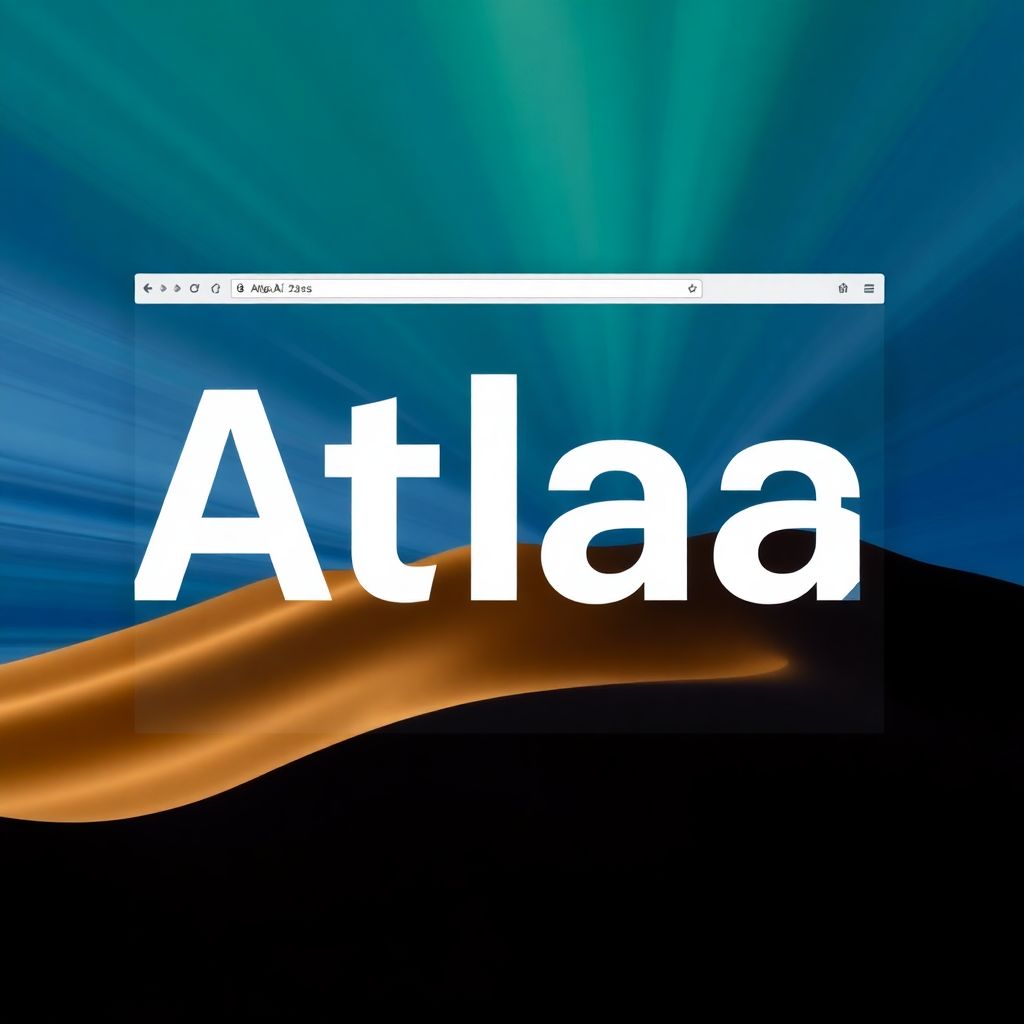OpenAI has taken a bold step toward redefining how users interact with the internet with the release of Atlas—a native macOS browser that seamlessly integrates AI capabilities. Unlike conventional browsers, Atlas merges web browsing with real-time AI assistance, enabling users to navigate, search, and interact with content in an entirely new way. But despite the buzz, the question remains: should Google, the titan of search and browser dominance, be worried just yet?
At its core, Atlas is not merely a browser—it’s a platform that blends chat interfaces, intelligent automation, and contextual AI support into one cohesive experience. Users can ask questions, summarize pages, automate tasks, and even generate content without leaving the browsing window. This represents a significant upgrade from traditional browsing, where users manually jump between tabs, search engines, and productivity tools.
OpenAI’s intent is clear. “We’re not just focused on building the world’s most capable models,” an OpenAI spokesperson explained. “We aim to embed this intelligence into tools that genuinely improve the way people live and work.” In other words, Atlas is designed to be a daily-use application, not just a tech demo.
However, despite its innovative approach, Atlas is still in its infancy. The product is currently limited to macOS, narrowing its reach significantly compared to Google Chrome, which is available across virtually all platforms. Furthermore, Atlas lacks the ecosystem maturity that Google boasts—from seamless integration with Gmail, Drive, and Docs to the deep personalization powered by years of user data.
Google’s dominance in the browser market, particularly with Chrome, is not solely based on raw features. It thrives because it’s deeply embedded into users’ digital lives. Chrome is fast, constantly updated, and backed by a robust infrastructure of services and APIs that make it indispensable for developers and end-users alike. Atlas, by contrast, is still building its identity and user base.
Another critical consideration is the ad business. Google’s search and browser platforms are intricately tied to its advertising empire. Atlas, at least for now, doesn’t appear to have a monetization model that competes with Google’s targeted ad services. Unless OpenAI develops a way to generate revenue from its browser without compromising user privacy or experience, it won’t pose a significant threat to Google’s bottom line.
That said, Atlas does represent a challenge for Google in one key area: the user interface layer of the internet. If OpenAI can successfully offer a browsing experience that feels more intuitive, intelligent, and helpful than Chrome, particularly for users who are less tech-savvy or more task-oriented, it could start to chip away at Google’s dominance—especially among younger, AI-native generations.
Moreover, the AI-driven nature of Atlas aligns with a broader shift in how people access information. Traditional search engines may soon feel outdated compared to AI models that deliver contextual answers, summarize data, and act on behalf of users. This shift could gradually erode the relevance of Google’s search algorithms if not properly countered.
It’s also worth noting that OpenAI sits on a treasure trove of user interaction data through ChatGPT. With Atlas, this data can now be linked to web behavior, potentially enabling OpenAI to train even more context-aware models. This could give Atlas an edge over time, especially if OpenAI focuses on personalization, task prediction, and proactive assistance.
Still, Atlas faces several hurdles before it can rival Chrome or Safari. Issues like performance optimization, browser extension support, cross-platform compatibility, and enterprise adoption will be crucial for long-term success. Without these, Atlas may remain a niche tool for enthusiasts and early adopters rather than a mass-market product.
Additionally, Google is not standing still. The company has been integrating AI features into its own products, including generative AI in Search and its experimental AI assistant Bard. As competition heats up, Google is likely to double down on its AI strategy, leveraging its vast resources and user base to maintain leadership.
In the broader landscape, Atlas’s release is a signal that browsers are evolving beyond passive windows into the web. We’re moving toward an era where AI serves as a co-pilot in our digital lives—helping us learn, create, and interact more effectively. While OpenAI may not dethrone Google today, it’s clearly setting the stage for a more intelligent, user-centric internet.
Looking ahead, the competition may not be about who has the better browser, but who can offer the smartest digital assistant embedded into every click, search, and scroll. In this new paradigm, Atlas is an ambitious first step.
In the short term, Google’s position remains secure. Its infrastructure, brand trust, and product ecosystem are unparalleled. But if OpenAI continues to iterate aggressively and expands Atlas to more platforms, builds developer support, and refines its user experience, it could gradually reshape how we think about browsers altogether.
Ultimately, Google’s real challenge won’t be losing users overnight. It will be ensuring that its browser and search tools remain indispensable in an age when AI can potentially eliminate the need for traditional search altogether. The race is no longer just about speed or simplicity—it’s about relevance in an AI-first world.

